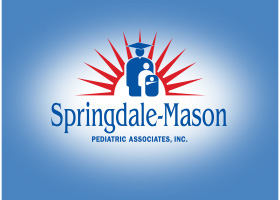Breath-Holding Spells
What are Breath-Holding Spells?
What Causes a Breath-Holding Spell?
What are the Symptoms of a Breath-Holding Spell?
How are Breath-Holding Spells Diagnosed?
What are Breath-Holding Spells?
Breath-Holding Spells may occur when a young child involuntarily "holds" his/her breath, resulting in a blue, gray or pale color of the face and body. It may occasionally be followed by fainting and a brief period of unconsciousness.
What Causes a Breath-Holding Spell?
Typically, a child between the ages of 6 months to 6 years will become emotionally upset, resulting in a prolonged inspiration and a subsequent "holding" of his/her breath (cyanotic spell). In some circumstances, a child may be surprised, excited, angered or frightened and may lose consciousness rapidly (pallid spell). It is hypothesized that the child loses consciousness due to a lack of cerebral blood flow from stimulation of the vagus nerve.
What are the symptoms of Breath-Holding Spells?
In addition to the color changes and occasional loss of consciousness, children may rarely have a brief seizure after they faint. These seizures will resolve on their own very quickly. Fortunately, the children begin breathing again spontaneously after they lose consciousness.
How are Breath-Holding Spells Diagnosed?
These spells are usually diagnosed by history alone. Your health care provider may choose to evaluate your child's heart with an electrocardiogram (ECG) or look for an underlying seizure disorder with an electroencephalogram (EEG). There is no relationship between these spells and epilepsy.
How are Breath-Holding Spells Treated?
The spells self-resolve as your child gets older. Parents, family members, child care providers and teachers should be aware of the possibility of a breath-holding spell. In the event that your child begins to "hold" his/her breath, caretakers should recognize the possibility of fainting and work to keep the child safe. It is not recommended that caretakers "give in" to the child's requests or wants just to avoid a spell. Parents may wish to consult with their health care provider or a trained therapist to explore effective behavior modification techniques.
Anticonvulsant medications are not effective in this condition. Atropine has been studied as a potential medication, but the side effects make this medication an unlikely choice. If your child has gastroesophageal reflux, your health care provider may choose to treat this condition more aggressively in order to minimize stimulation of the vagus nerve.
Parents should be taught how to respond and treat a seizure in the event that it should happen in association with a Breath-Holding Spell. They should activate their local emergency medical system (e.g. Call 911) if their child loses consciousness for greater than 1 minute.
What are the Complications of a Breath-Holding Spell?
These spells will not harm your child as long as proper safety precautions are met to avoid trauma during a fall to the ground. There are no known long-term effects. You may want to talk to a therapist if you find yourself avoiding discipline for fear of inducing a spell.
References
Schmitt BD. Instructions for Pediatric Patients. Philadelphia: WB Saunders 1992
Avery ME, Pediatric Medicine, Williams and Wilkins, 1989
Reviewed by: Dan Feiten MD
This Article contains the comments, views and opinions of the Author at the time of its writing and may not necessarily reflect the views of Pediatric Web, Inc., its officers, directors, affiliates or agents. No claim is made by Pediatric Web, the Author, or the Author's medical practice regarding the effectiveness and reliability of the statements contained herein and such individuals and entities disclaim any and all liability for the comments and statements contained in this Article and for any use or misuse of the statements made in this article in any specific medical situations. Further, this Article is intended to be general in nature and shall not be considered medical advice. The statements made are not to be utilized to diagnose and/or treat any individual's medical symptoms. If you or someone you know has symptoms which you believe are similar to this Article, you should discuss such symptoms with your personal physician or other qualified medical practitioner.
Copyright 2012 Pediatric Web, Inc., by Dan Feiten, M.D. All Rights Reserved


